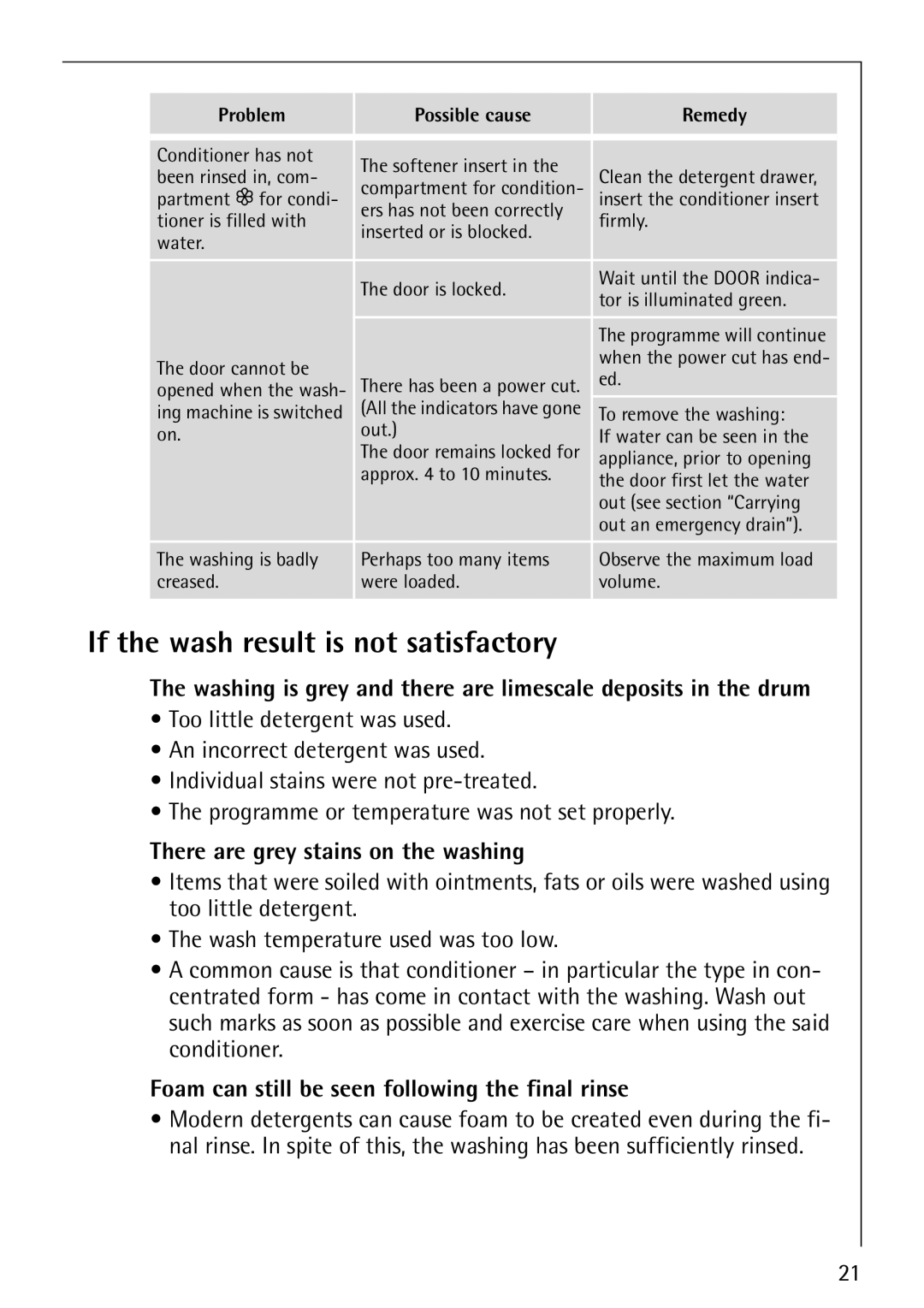
Problem | Possible cause | Remedy | |
Conditioner has not | The softener insert in the |
| |
been rinsed in, com- | Clean the detergent drawer, | ||
compartment for condition- | |||
partment w for condi- | ers has not been correctly | insert the conditioner insert | |
tioner is filled with | firmly. | ||
inserted or is blocked. | |||
water. |
| ||
|
| ||
| The door is locked. | Wait until the DOOR indica- | |
| tor is illuminated green. | ||
|
| ||
|
|
| |
|
| The programme will continue | |
The door cannot be |
| when the power cut has end- | |
There has been a power cut. | ed. | ||
opened when the wash- | |||
| |||
ing machine is switched | (All the indicators have gone | To remove the washing: | |
on. | out.) | If water can be seen in the | |
| The door remains locked for | appliance, prior to opening | |
| approx. 4 to 10 minutes. | ||
| the door first let the water | ||
|
| ||
|
| out (see section “Carrying | |
|
| out an emergency drain”). | |
The washing is badly | Perhaps too many items | Observe the maximum load | |
creased. | were loaded. | volume. | |
|
|
|
If the wash result is not satisfactory
The washing is grey and there are limescale deposits in the drum
•Too little detergent was used.
•An incorrect detergent was used.
•Individual stains were not
•The programme or temperature was not set properly.
There are grey stains on the washing
•Items that were soiled with ointments, fats or oils were washed using too little detergent.
•The wash temperature used was too low.
•A common cause is that conditioner – in particular the type in con- centrated form - has come in contact with the washing. Wash out such marks as soon as possible and exercise care when using the said conditioner.
Foam can still be seen following the final rinse
•Modern detergents can cause foam to be created even during the fi- nal rinse. In spite of this, the washing has been sufficiently rinsed.
21
